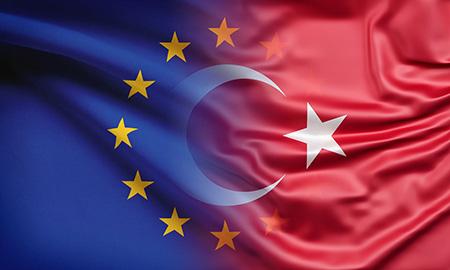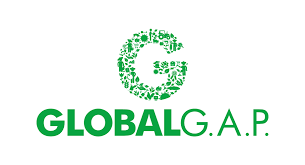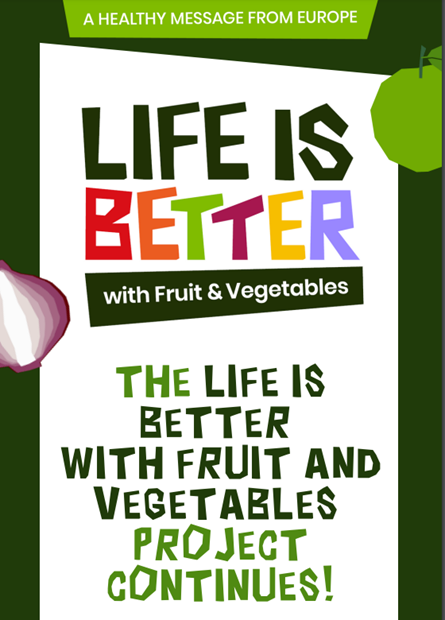
Freshfel Europe Headlines – Edition 6, 2023
Freshfel Europe’s Headlines publication provides an overview of the Association’s most recent activities.
For more information about Freshfel Europe’s activities please contact the Freshfel Europe Secretariat.


Freshfel Europe’s discuss trade at EU-Türkiye agri-food business forum
Philippe Binard, General Delegate of Freshfel Europe, attended the EU-Türkiye agri-food business forum with the attendance of EU Commissioner for Agriculture Janusz Wojciechowski and Türkiye Minister of Agriculture Ibrahim Yumakli. At the forum, the different sector from the EU and Turkey presented their views on various Agri business-developments.
Looking at the last three years, the EU and Turkey have maintained an established and balanced trade of goods and services. However, fresh produce is an outlier. In 2022, Turkey exported 1,1 million tons, worth €1,3 billion, of fresh fruits and vegetables to the EU. Mostly watermelons, other types of melons, citrus and cherries. In the other direction, the EU exported only about 8300 tons of fresh produce to Turkey, with the bulk of it being re-exports of exotic products like mangoes and avocadoes.
This trade deficit between the EU and Turkey must be addressed, and Freshfel Europe highlighted some actions that can be taken to rebalance this trade relationship. This would include actions on food safety and consumer expectations, ensuring reciprocity in market access conditions, moving together towards sustainability, and building confidence and transparency.
In moving towards embracing a plant diet, there is momentum for further growth of the fresh produce sector based on the three pillars of sustainability. Growers and traders on both sides are confronted with the same challenges that hopefully they can overcome together, sharing lessons and best practices.


Freshfel Europe works with the European Commission to update the list of pending export protocols
The Freshfel Europe team, working together with officials from the European Commission’s Directorate-General for Trade (DG Trade) have worked over several weeks to liaise with Freshfel members and Member State officials in updating the list of pending protocols for the export of fresh produce to third countries. The list helps the Commission guide its efforts to open up third-country markets to European fresh produce as part of FTA negotiations.
Over two weeks, the Freshfel team worked off the pre-existing list in the Market Access Database (MADB) to indicate protocols that were already in force, and the status of the pending ones based on insight from its member associations and companies, while the European Commission worked with national authorities to obtain up-to-date information on the status of the protocol negotiations.
To obtain the information, Freshfel Europe held several meetings and discussions with its members from most EU Member States on a range of fruits and vegetables with a particular focus on pending or ongoing protocols to export to high-interest markets, including India, China or Indonesia.
The collaboration resulted in an updated list of protocols, with the Commission removing from the MADB those protocols that Member State authorities deemed to be no longer relevant or a priority for negotiations, and updating the status of the other ones to maintain a useful platform to guide the work of national and EU authorities as well as private sector actors.


Freshfel Europe presents at CropLife Europe Residue Workshop
Egle Baecke, Director Food Quality & Security presented the views of the sector regarding the challenges around residues in daily business at the Residue Workshop organized by CropLife Europe. During the presentation, Egle underlined that access to the market and customer does not compromise on safety of produce. Food safety is a non-negotiable prerequisite granted by the legislation and further enhanced by the private sector. The fresh produce business is operating in a challenging environment due to public scrutiny, lack of confidence in the legislation, loopholes in the legislation, etc. Communication is key to building confidence in fresh produce which provides European consumers with multiple benefits. The role of public authorities is to secure consumers’ confidence.
During the presentation, Egle also outlined a number of challenges concerning the MRL lowering process in the framework of the Farm-to-Fork Strategy, different national initiatives, the setting of temporary MRLs and opposition to MRLs in the European Parliament. Egle also stressed the importance of the European Commission’s transparency tools when tracking the changes in MRLs. The tools in place allow the sector to anticipate the timelines to prevent issues when placing products on the market.

Freshfel Europe coordinates a joint sector approach to reporting under the CSRD
A key element of the reporting under the Corporate Sustainability Reporting Directive – the CSRD – is the double materiality assessment. This assessment is necessary to determine what issues are material for your company. Both in terms of what your company affects on, but also what is affecting your company. Determining this is an extensive exercise which demands a great deal of resources, time and engagement from companies.
In light of this, Freshfel Europe has initiated a joint sector approach to the double materiality assessment. By pooling both resources and knowledge, the project aims to assist companies in the fruits and vegetables sector with their reporting under the CSRD. The project is open to all companies in the fresh produce sector, and will first and foremost aim to guide sector companies in their compliance. However, it will also lay the foundation for wider opportunities in the realm of sustainability reporting and accountability.
By coming together to create transparent, joint assessments of Environmental, Social and Governance (ESG) topics, the sector will be able to leverage this in communication with both consumers and others. The project will provide a foundation for a more transparent, coherent and clearer way to communicate the good story that the sector has to tell and also to show more about the improvements that are being made and what efforts are being taken.


Continued engagement with GLOBALG.A.P. on the functionality of environmental standards
As the process of developing GLOBALG.A.P.’s proposed Environmental Sustainability Standards (ESS) certification continues, Freshfel Europe remains an active participant and contributor to the consultation. To ensure a good exchange of feedback, parts of the Freshfel Europe secretariat travelled to Köln in late October to meet GLOBALG.A.P.’s Managing Director Elmé Coetzer-Boersma and Coordinator Rene Capote. Members of both Freshfel Europe’s and GLOBALG.A.P.’s board were also present to join the conversation.
Freshfel Europe and GLOBALG.A.P. agree that the ESS must be realistic, functional and feasible to fulfil their purpose. In addition, they must remain outcome-based and be aligned with other reporting standards, both voluntary and legislative, to not contribute to duplication of reporting.
Freshfel Europe and GLOBALG.A.P. aim to continue this good collaboration to achieve valuable outcomes that are fit for purpose, without compromising on ambition.

Freshfel responds to Commission’s consultation on new breeding techniques’ consultation
Freshfel Europe submitted its response to the public consultation on its proposal for a Regulation on new breeding techniques on 5 November.
In its response to the consultation, Freshfel welcomed the Commission’s efforts to create a more flexible and innovative framework but raised its concerns over how the proposal defined the threshold between category 1 and category 2 NGT plant products, advocating instead for a threshold that took into account more complex genomic sequences to be able to cover polyploid fruits like bananas or strawberries.
Moreover, Freshfel advocated for removing the envisioned labelling for category 1 NGT seed bags and other plant reproductive materials under Article 10, by indicating that the evidence from EFSA showed that there was no real difference between conventionally bred and NGT seeds, and that by introducing such a label, it risked discriminating against NGTs products.
Freshfel also welcomed the Commission’s intention to create accelerated approval procedures for NGTs that featured sustainability-enhancing traits, as this kind of accelerated process is a model for any future proposals that want to boost sustainability while avoiding unnecessary red tape.
Lastly, Freshfel’s position paper drew the Commission’s attention to the worrying issue of patenting and echoed the concerns of other actors in the agri-food chain. Indeed, Freshfel called for regulators to modify the status quo in patenting to improve the access of farmers and plant breeders to advanced breeding techniques and avoid SMEs from being locked out from NGT development due to high entry costs and barriers.


Life is better with Fruit & Vegetables – Newsletter #6
The sixth edition of the newsletter of the Life is Better with Fruit and Vegetables campaign is now available at this link.
Life is Better with Fruit and Vegetables is an EU-funded programme that targets Millennials and aims to increase their level of knowledge regarding the nutritional benefits, versatility, sustainability, and practicality of fruit and vegetables. Young Europeans aged 25 to 35 represent a key demographic of consumers, as they are still shaping their purchasing and eating habits.
The campaign, which was officially launched during a press conference on the occasion of Freshfel Europe´s Annual General Meeting on 18 May 2022, will run until February 2025 and will take place in France and Ireland, in addition to having a pan-European dimension. It involves Interfel, AIB, Bord Bia, and Freshfel Europe.
All the material of the project is available on the website of Life is Better with Fruit and Vegetables, with a dedicated webpage for each of the target countries of the campaign (France and Ireland, in addition to Germany, Italy, Poland, and Spain).
